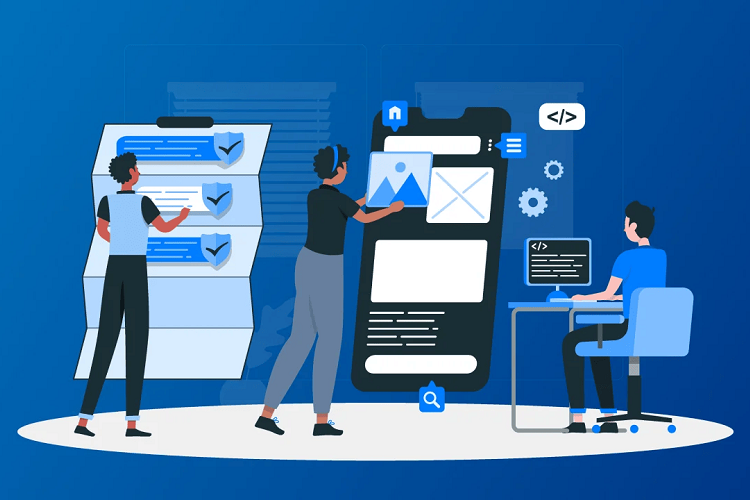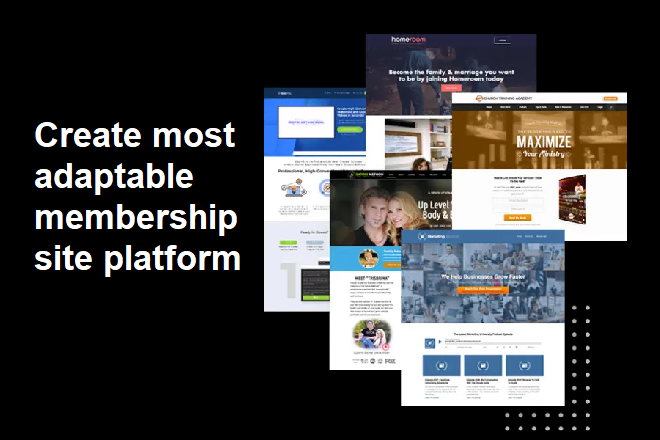Looking for the perfect mobile app developer for your startup? This comprehensive guide will walk you through the process.
Developing a mobile app can be the key to success for many startups today. With mobile device usage continuing to grow rapidly, having an intuitive and engaging app has become a must for modern businesses.
However, turning your brilliant app idea into reality requires finding the right app developer. This process can seem daunting, especially for first-time founders with limited tech knowledge.
This guide will walk you through the essential steps to find the right mobile app developer for your startup. From understanding your requirements to evaluating candidates, you’ll learn insider tips to help you hire the ideal mobile app developer to bring your vision to life.
Understanding Your App Requirements
Before you start searching for developers, it’s vital to have a clear understanding of what you want your app to achieve. Defining the purpose and goals of your app gives you a solid foundation to find the right mobile app developer for the job.
Here are some important questions to consider and ask yourself:
- What primary problem is your app solving for users? Understanding the core utility it provides allows you to communicate this effectively to developers.
- Who is your target audience? Defining user demographics and preferences helps build an app optimized for them.
- What platforms do you want to launch on – iOS, Android, web, all three? The platform dictates the tech expertise required.
- What are the key features and functionalities your app should have? Prioritize must-have MVP features versus nice-to-haves.
- Do you have wireframes, user flows, or prototypes of app screens and UX? Visual guides are useful for developers to understand the end product.
- What is your budget and timeline for development? This gives developers an overview of your expectations and constraints.
Answering these questions will provide you with a detailed brief of your app’s purpose, features, and target market. I recommend creating a written document to summarize this for potential developers. It acts as a valuable guide as you start your search.
Types of Mobile App Developers
The mobile app development landscape has a diverse range of professionals offering various skill sets. Here are the main developer types to know:
-
iOS Developers
These are developers specialized in building iOS apps in Swift or Objective-C. They have expertise in Xcode, Cocoa Touch, and Apple guidelines. If your app is iOS-only, hiring a dedicated iOS developer is recommended. They deliver the best iOS user experience.
-
Android Developers
Android developers build apps using Java or Kotlin and have specialized skills in Android Studio, Material Design, and Google Play policies. For Android-only apps, an Android developer brings platform-specific knowledge.
-
Full-Stack Developers
Full-stack developers handle both front-end app coding and back-end server-side logic. They can build cross-platform apps using React Native, Flutter, Xamarin, or hybrid tools. Full-stack skills allow end-to-end app development.
-
Cross-Platform Developers
These developers use cross-platform frameworks like React Native or Flutter to build iOS, Android, and web apps from a single codebase. This offers cost savings compared to native app development.
The type of developer aligning best with your needs depends on your app requirements, timeline, and budget. Cross-platform skills can be great for quick MVP launches on multiple platforms. But for more complex apps prioritizing polished user experience, native developers may be ideal.
Essential Characteristics of a Mobile App Developer
When evaluating developer candidates, here are the most crucial qualities to look for:
-
Technical Skills
A strong grasp of programming languages and app development frameworks is a must.
For iOS, expertise in Swift and Objective-C is essential. Comfort with Cocoa Touch, Xcode, and Apple guidelines will also be key.
For Android, core competency in Java or Kotlin is important, along with experience in Android Studio and Material Design.
Full-stack and cross-platform developers should demonstrate skills in JavaScript, React Native, Flutter, or related technologies.
All developers should have a solid handle on app UI/UX principles, responsive design, development testing, and debugging.
Review their skills against your tech stack requirements to ensure alignment. You can test out their expertise during technical interviews.
-
Portfolio
The developer’s portfolio provides tangible examples of past work to assess their capabilities.
Look for apps similar to yours in terms of functionality and design. Evaluate the UI/UX quality and user flows. Check how well the apps performed once launched – were they well-received and downloaded?
Testing out some of the live apps yourself gives direct experience of the developer’s end products for users.
-
Problem-Solving and Creativity
App development involves constant problem-solving. Developers must creatively overcome technical hurdles and optimize apps for an ideal user experience.
Look for demonstrated ingenuity in finding solutions and flexibility to try new approaches. Their thinking process is just as important as technical proficiency.
During interviews and with portfolio work, assess their problem-solving skills with app development challenges. Do they ask insightful questions? Do they have clever ways to tackle issues?
-
Communication Skills
Clear communication is essential throughout the mobile app development process. From conveying technical approaches to giving project updates, concise and organized communication prevents missteps.
Evaluate their written and verbal skills from initial outreach conversations. Look for clarity in discussing work, asking questions, and explaining technical details to non-technical founders.
Developers need to collaborate closely with product managers and designers. Ensure they value team communication and create a shared vision for your app.
Where to Find Mobile App Developer
With an understanding of the qualities to look for, here are some top places to discover talented developers:
-
Freelance Platforms
Websites like Upwork, Freelancer, Guru, and Toptal connect businesses with freelance developers.
You can post your project needs, setting the required skills, experience level, and timeline. Developers then apply to your listing with proposals.
Review developer profiles, portfolios, client reviews/ratings, and location. Shortlist the most qualified candidates and schedule intro calls. These platforms offer built-in tools to manage payments, contracts, and deliverables.
Be prepared to screen through many applicants to find the best fit. Defining very specific requirements in your posting helps surface more relevant profiles.
-
Development Agencies
Mobile app development agencies provide dedicated teams to design, build, test, and launch your digital product.
They offer end-to-end services – from UX/UI design to QA testing and ongoing maintenance. This streamlined approach can accelerate time-to-market.
When researching agencies, look for proven expertise in your app’s niche. Evaluate their development process and project management practices. More structured workflows minimize risks for startups.
Agencies allow access to more seasoned talent. But they come with higher costs than independent freelancers. Weigh the benefits for your goals.
-
Networking
Attending local tech meetups, conferences, and events allows networking with the developer community in-person.
From startup launch nights to mobile app developer gatherings, these forums give exposure to many talents. Interacting face-to-face builds stronger connections.
Come prepared to share your app concept and technical needs. Collect contact info of promising candidates to follow up post-event.
You can discover developers already passionate about innovating in your app’s niche. The shared enthusiasm boosts collaboration potential.
-
Job Boards and LinkedIn
Traditional job boards like Indeed, Monster, and Stack Overflow give access to actively job-seeking developers. LinkedIn also has robust developer communities and features.
For startups, these platforms make it easy to post and promote your app developer job listing. You can target candidates based on location, skills, job titles, past companies, school, and other filters.
The key is crafting a compelling job post highlighting your vision, technical needs, and work culture. Encourage ideal candidates to apply. Then screen resumes and arrange interviews.
The Hiring Process
Once you’ve found promising developer candidates through your search efforts, here are the typical steps to finalize the hiring:
-
Post a Detailed Job Listing
Create a posting on freelance sites, job boards, LinkedIn, and your own website detailing your technical needs, app purpose, team culture, required skills, compensation, and preferences. Encourage ideal fits to apply directly.
-
Review Resumes and Portfolios
Screen incoming developer applications against your criteria. Shortlist candidates with relevant backgrounds and impressive portfolio work. Schedule intro calls with top applicants.
-
Conduct Interviews and Assessments
Use video interviews to directly evaluate technical expertise, communication skills, and problem-solving abilities through technical questions. You can also conduct short paid trial projects.
-
Check References
Have short discussions with references provided by the developer to fact check capabilities and work ethic.
-
Negotiate Contracts and Terms
Agree upon project timelines, milestones, hourly rates/fees, payment structures, IP rights, and other contract terms before officially onboarding.
Move forward with paperwork once you’ve found the ideal culture fit and technical match.
Questions to Ask During Interviews
Interviews allow you to directly assess a developer’s technical capabilities and soft skills. Here are some insightful questions to consider:
Technical Questions
- What languages, frameworks, and tools do you specialize in for app development?
- How do you stay updated on the latest iOS/Android releases, SDKs, and best practices?
- How do you optimize apps to provide smooth UI/UX and minimal bugs?
- How do you approach app security and protecting user data?
- How do you test apps to ensure responsive design and compatibility across devices?
Problem-Solving Scenarios
- If an app you built was draining battery quickly, how would you identify and fix this issue?
- How would you improve the sign-up process of an app with high drop-off rates at that step?
- If an app’s server was crashing frequently, how would you investigate and troubleshoot the problem?
Previous Projects
- What mobile apps have you worked on that you’re most proud of? Why?
- What was the biggest technical challenge faced on a recent project, and how did you overcome it?
- How do you balance technical recommendations and business priorities when building apps?
Communication Skills
- How do you prefer to communicate with team members during app projects?
- How do you ensure clear documentation for smooth handoff from development to ongoing maintenance?
- How do you collaborate with stakeholders like designers, product managers, and QA testers?
Listen for detailed explanations, technical insight, and concise communication skills. Technical assessments and trial projects also provide direct evaluation opportunities.
Evaluating Cultural Fit
In addition to technical expertise, cultural fit is also crucial for long-term collaboration success. After all, you may be working with this developer for months to years scaling your startup.
Here are some tips to find mobile app developer for startup that aligns with your values and culture:
- Share your startup’s vision, mission, and values – Gauge if the developer resonates with your purpose and principles.
- Ask about their preferred work style – Do they thrive in high-paced startups or prefer more traditional environments? Look for alignment.
- Discuss their professional goals and growth ambitions – See if they mesh with your startup’s trajectory.
- Assess communication styles – Ensure clear, transparent, and concise communication.
- Consider their leadership and mentoring abilities – Seasoned developers can guide junior team members.
- Evaluate teamwork approach – App development requires close collaboration.
- Check for product passion – Developers who love your product space bring inherent motivation.
A developer needing heavy guidance and structure may not thrive in an early-stage startup. Seek self-driven problem-solvers who align with your culture.
Testing and Trial Periods
Before fully committing to a developer for an extended project, a testing phase helps evaluate capabilities and collaboration.
Potential approaches include:
- Code samples – Requesting code samples in your app’s tech stack from candidates provides immediate insight into skills.
- Mini-project – Paying candidates to complete a short representation project aids in the evaluation of their talents.
- Two-week trial – Using a developer for two weeks to build app MVP features provides validation before committing to a large investment.
- Freelance project – Testing with a 3-6 month freelance contract before hiring full-time enables for review.
Short-term tests should be organized around clear technical milestones linked to your product. This enables for meaningful skill assessment while still completing concrete work.
Negotiating Contracts and Terms
Aligning on optimal contracts and payment terms ensures beneficial engagement for both parties.
Be clear on project scope, timeline, deliverables, and payment stages. Schedule payments around agreed milestones to incentivize progress.
Factor in equity, revenue share, bonuses, or incentives for stellar performance. But emphasize base pay at fair market rate to attract top talent.
Clarify intellectual property, licensing rights, and non-disclosure boundaries. Have legal support to solidify formal agreements.
Leave room for flexibility around contract extensions, scope changes, and renegotiations as needed. Apps often evolve over time after initial launches.
Conclusion
Finding and hiring mobile app developer sets the stage for bringing your startup’s vision to life. With the right strategic approach, you can discover talented coders with the ideal expertise, work ethic, and culture fit.
Define your app requirements so candidates clearly understand the skills needed. Vet developer capabilities from both a technical and collaboration standpoint.
Conducting testing periods and outlining detailed contracts builds relationships poised for long-term success. By investing upfront in the developer search and hiring process, you empower your startup with the best chance of app development success.
Pratik is a creative content writer at ThinkODC with a passion for all things digital. He has developed a wide range of content for clients in diverse fields such as technology, fashion, beauty, and health. His writing style is engaging, informative, and conversational, making his content relatable to all types of readers.



